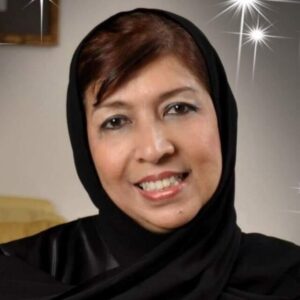Two days ago, we published an article highlighting the imbroglio between Malaysia Airlines and in-flight and airport lounge service providers. That took us on a journey of revelations and discoveries. We feel compelled to publish further findings which may have a bearing on our ‘national security’
Malaysia Airlines needs to beef up its sensitivity to Malaysia’s sociopolitical and religious conservatism and non-compromising stands that are critical to having cultural and business dealings, notably with the Israeli state apparatus and involvement.
Worth noting is that airport lounges, designed to offer comfort and convenience to travellers, may inadvertently expose passengers’ sensitive information to potential security risks. The extent of information accessible to lounge operators varies, contingent on factors such as the specific airport, airlines involved, and the passenger’s access or membership status.
Herein lies the challenge: while lounges are meant to provide respite, a measure of scrutiny is imperative to safeguard passenger data.
What Information Do Airport Lounge Operators Have Access To?
1. Flight Specifics: Lounge operators routinely access flight-specific data, encompassing booking details, connecting flights, return flights, and details of fellow travellers. This assists in confirming passenger eligibility and facilitating a seamless experience.
2. Personal Details: Passengers’ personal information, including their names, membership credentials, credit card details, boarding passes, and contact information, is often within reach of lounge operators.
3. Identification Documents: Lounge operators commonly request valid government-issued photo identification, such as passports, driving license, or national identity cards, for verification purposes.
The sensitivity of this information makes it imperative that airport lounge operators undergo stringent scrutiny to preclude associations with government-linked organizations, particularly those of a non-friendly nature.
The Malaysia Airlines Dilemma
Malaysia Airlines has, in the past, entrusted the operation of its Golden Lounges to a subsidiary. However, recent developments indicate a shift toward a foreign operator. The foreign entity is poised to manage three Golden Lounges at KL International Airport (KLIA), spanning satellite, regional, and domestic terminals, in addition to Langkawi and Penang.
Internationally, as of October 2023, Malaysia Airlines has turned to the foreign entity, Plaza Premium Group, to host their premium passengers in their lounges in eight destinations, including Phnom Penh, New Delhi, Hyderabad, Shanghai, Hong Kong, Taipei, Adelaide, and Sydney.
In The Edge article dated 03 October, Industry players tell MAG’s board not to bow to pressure and to support management, an unnamed industry analyst has criticised Brahim’s inflight meals and also a clear message that Mas Awana Sdn Bhd should concentrate on the inflight meals while the Plaza Premium Group should be given the lounge business. NMH views this as a concerted effort to wrestle away the KLIA Golden Lounge operations from current subsidiary operator at multiple ends, media included.
Plaza Premium Group: A Hong Kong-Based Operator
Plaza Premium Group (PPG), headquartered in Hong Kong, is the overseas lounge operator for Malaysia Airlines. The group’s lounges are listed as their operator in Hong Kong on Malaysia Airlines’ Golden Lounge website.
The practicality of utilising Plaza Premium lounges overseas hinges on competitive pricing and acceptable service levels for Malaysia Airlines’ business and first-class passengers.
Security Concerns and Ties to El Al Israeli Airlines Ltd
The affiliation of Plaza Premium Group with El Al Israeli Airlines Ltd has raised eyebrows. Currently, PPG is the operator for El Al King David Lounge/Blush Lounge in London Heathrow Terminal 4 and New York JFK Airport – either operating on behalf or exclusively hosting El Al passengers.
The circumstances leave one wondering whether Malaysia Airlines’ management is genuinely unaware of these facts, even though there are elaborate processes typically involved in an organisation like Malaysia Airlines. Or, could it be that foreign intelligence agencies have infiltrated our national carrier via personal coercion, threats, or unethical inducements?
Authorities should conduct a thorough investigation into this matter, as the Israeli intelligence has been linked to various incidents in Malaysia, including the unfortunate assassination of a Palestinian lecturer Dr. Fadi Al Batsh in Setapak, Kuala Lumpur. The incident occurred during the early hours while the victim was on his way to a local mosque, underscoring the potential risks associated with compromised security. Sources from Palestine claimed they have arrested the related responsible parties traced back to the Israelis.
At this moment, extra vigilance is required. In a Sinar Daily article published on 18 Oct 2023, Impossible for Malaysia to sympathise with Israel our ambassador to the United States, Datuk Seri Mohamed Nazri Abdul Aziz was called by the United States Department of State about Washington’s displeasure with some of Malaysia’s strong statements against Israel.
Possible Espionage
In conclusion, Malaysia is not immune to espionage and spying. We are one of the largest trading nations in the world and at the same time, we abstain from all things Israel, including our bilateral relations.
The access of passenger information by airport lounge operators necessitates enhanced vigilance and scrutiny, particularly when international affiliations with security-sensitive entities are involved.
The security and privacy of passengers, including high-ranking government officials and business leaders, must remain a top priority.
This thus begs a crucial question: Can Malaysia Airlines’ business and first-class passengers, who often include senior government officials and business leaders, entrust their personal information and identities to a lounge operator linked to El Al Israel Airlines Ltd? – NMH
Datin Hasnah is the co-founder and CEO of New Malaysia Herald based in Kuala Lumpur, Malaysia.
With an extensive background in mass communication and journalism, she works on building up New Malaysia Herald and it’s partner sites. A tireless and passionate evangalist, she champions autism studies and support groups.
Datin Hasnah is also the Editor in Chief of New Malaysia Herald.

Facebook Comments